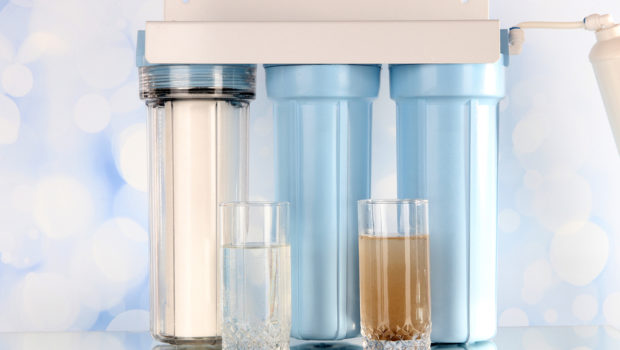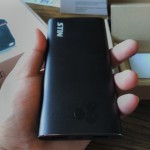How to choose a fluoride water filter for your home?
If purchasing a fluoride water filter for your home as being a long time consideration for you, then you’ve come to the right place. In this post, we’ll consider several key factors to put in mind before purchasing a water filtration system for your home.
While there is a wide range of reasons to need a water filter in your home, such as having a family member with a compromised immune system or need your water to taste better, choosing the right equipment is essential. Reading reviews of different brands like GE whole house water filter review really helps you take the right decision.
Where does your water come from? Well? Does it have some contaminants? If this is the case, then you should lean towards products from reputable brands such as fleck.
Without any further ado, let’s consider tips to help choose the right water filter for your home.
Tip 1 – what contaminant do you want to remove?
This is the first thing to figure out before buying just any kind of filter that comes your way. You should check the label to see if the water filter can remove fluoride or any other contaminants. Be sure to verify the manufacturer’s claims from other independent sources aside from sales representatives. In case water has high iron content, you should check the best water softeners for iron removal.
Do not forget that a lot of brands offer different kinds of filters, and you might require the assistance of a salesperson, but don’t be carried away with their salesy statements. Ensure to check all claims and read the fine prints to ensure it’ll serve your purposes.
Also, it would be best if you didn’t assume that the filter will be able to remove all contaminants. Further, a filtrating water system that removes chemicals such as heavy metals may not be to remove germs effectively.
But if you are looking to remove fluoride check this best fluoride removing water filter buying guide then you consider water treatment devices such as distillation system, ion exchange, or osmosis.
Tip 2 – Overall cost
There are different filtration systems out there from different brands, which means they come with a different price tag. The simpler model can with a price tag under $20, while complex options go as high as hundreds of dollars and require technical know-how to install.
That’s not all: you might have to consider the ease of maintenance, schedule, and cost alongside the price of purchasing a water filtration and installing it. For this equipment to function properly, they require proper maintenance, such as changing the cartridge regularly.
Tip 3 – How much water do you need to be filtered?
Some water filters are fast, while other models are capable of handling large amounts of water quickly. However, for people looking to filter their drinking water, you need to purchase a slow filter.
Tip 4 – Type of water filter
In most stores and homes, the commonly used types include under-sink filters, on-counter filters, faucet-integrated filters, faucet-mounted filters, water filter pitchers, and whole-house treatment units.
No treatment or filter options are 100% effective in getting rid of germs and contaminants from water. Therefore, you need to determine the kind of Water Softener Installation Since 1989 you want before going shopping.
Water filter pitchers
Water filter pitchers are filled from the top, and the water is poured out from the pitcher through built-in filters for drinking for other use.
Pros:
- No installation cost
- Easy to use
- Affordable option
Cons:
- Lots of different models and pore sizes
- Slow filtration
- Filters need to be replaced option
Refrigerator filters
Many refrigerators feature a built-in filter to supply water and an automatic icemaker via the door.
Pros:
- Included in many refrigerators improve the water taste
- Easy to use
- Also used for making ice
Cons:
- Filters need regular replacement
Faucet-mounted filters
Faucet-mounted filtration systems are usually attached to a standard faucet, which allows you to switch between unfiltered and filtered water flow.
Pros:
- Easily switch on and off between unfiltered and filtered water
- Relatively inexpensive
Cons:
- Not compatible with most faucets
- May slow the flow of water
(Built-in) Faucet-integrated filters
This type of filtration system is designed with a built-in filter rather than an attached filter similar to faucet-mounted systems.
Pros:
- Easy to switch between unfiltered and filtered water
Cons
- Usually expensive
- Requires installation
On-counter filters
Faucet-integrated filters are faucets featuring a built-in filter rather than an attached filter similar to the faucet-mounted systems. Also, they require installation.
Pros:
- Easy to switch between unfiltered and filtered water
Cons:
- On the pricey side
- Requires installation
Under-sink filters
These water filtration systems are installed under the sink as the name implies and send water to the filter’s installed faucet.
Pros:
- Filter a larger amount of water
- Space-saving design
Cons:
- On the pricey side
- Requires a plumber during installation
Whole-house water treatment
This type of treatment option is meant for treating all water entering the house
Pros:
- The whole water outlet gets treated
- Ideal important for treating hard water and VOCs
Cons:
- Pricey tag
- Requires professional maintenance
- Plumbing assistance is needed during installation















